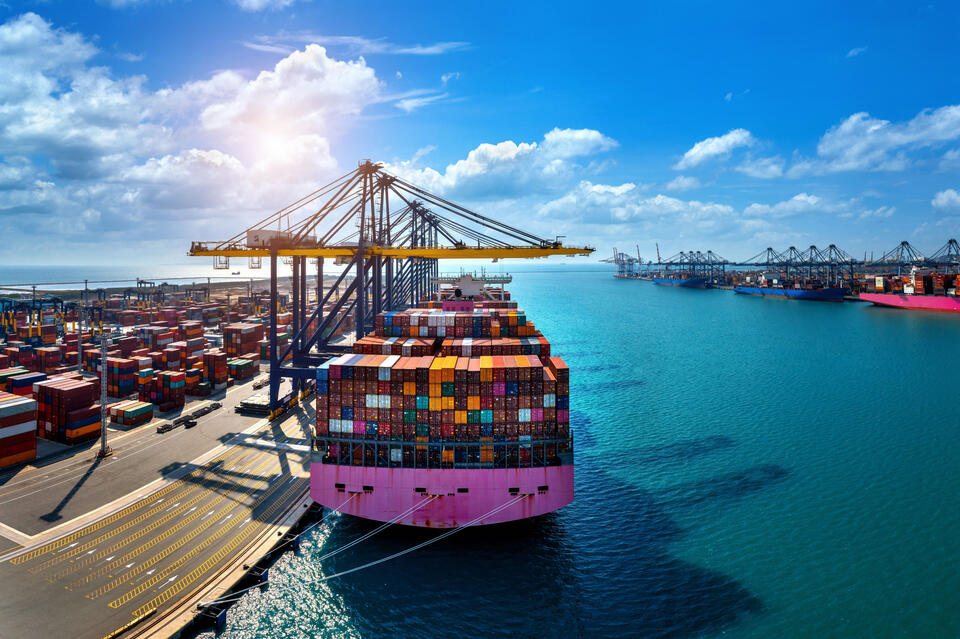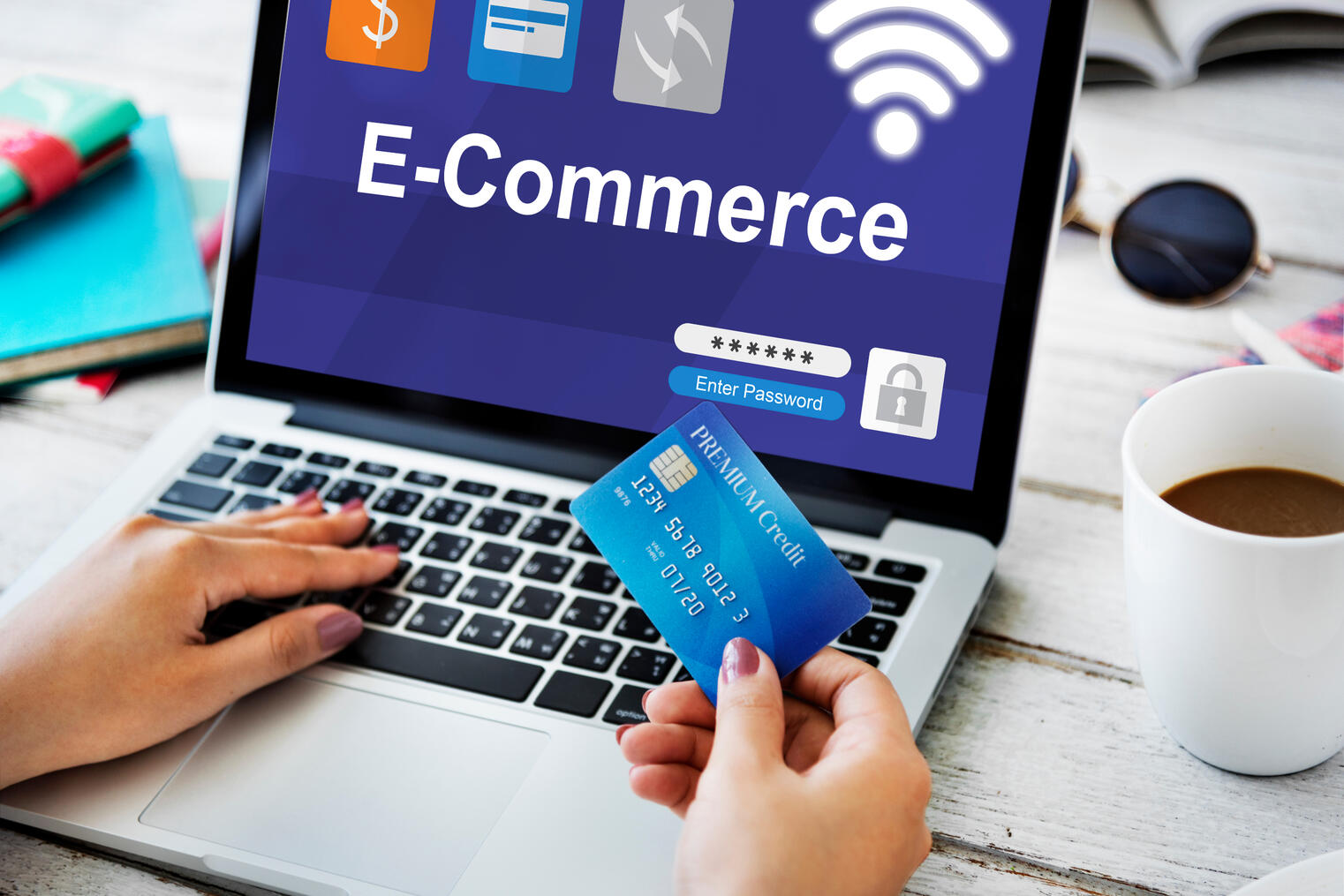
AllinBulk
"Your Trusted Wholesale Partner."
Get In!
Discover a World of Wholesale Opportunities
Who are we ?
Welcome to AllinBulk
Where distribution meets excellence!Unlock the power of seamless distribution and wholesale solutions tailored to elevate your business to new heights. With [Company Name], efficiency and reliability are the cornerstones of our service.From sourcing top-quality products to delivering unparalleled customer satisfaction, we are your trusted partner in the world of distribution and wholesale. Our commitment to excellence drives us to exceed your expectations every step of the way.Discover a world of possibilities with our comprehensive range of products and services. Whether you're a retailer seeking premium goods or a supplier looking to expand your reach, we have the expertise and resources to make your vision a reality.


"Discover the joy of receiving your packages faster than ever before."
Orders
Efficient shipping times are crucial for wholesale companies as they directly impact customer satisfaction, operational efficiency, and overall business success. By prioritizing and investing in strategies that minimize shipping times, wholesale companies can gain a competitive advantage, reduce costs, and foster stronger relationships with their customers. In today's fast-paced business landscape, meeting the demands of customers through timely deliveries is no longer just an option; it's a necessity.
Minimize Shipping Times with Us
Drive Efficiency, Minimize Wait
Boost Your Business with Rapid Shipping Solutions!Efficient logistics to ensure your packages arrive on time."
Shop with us and enjoy expedited shipping options for all your orders.


"Reliable and Consistent Manufacturing Quality"
Our Trusted Supplier's Commitment to Excellence"
Elevate Your Wholesale Business with Our Supplier's Superior Offerings"

Understanding Inventory Management
we Got you
running inventories can be a daunting task, especially for those without prior experience in the field, we provide some practical tips to help navigate these hurdles.
Allinbulk
FAQ
FAQ Resolution:Frequently asked questions can vary widely among clients.
Scheduled discover calls allow us to address these questions comprehensively and tailor responses to specific client contexts, ensuring clarity and satisfaction.
Get started on your path to success.
Complete our qualification survey and let us assess your needs.
Scheduled a call with us
AllinBulk
Wholesale Success:How Discovery Calls Streamline Client Onboarding
In the context of acquiring our wholesale service, implementing a well-structured discover call scheduling process emerges as the ideal strategy to proactively address client objections and frequently asked questions (FAQs).
By facilitating meaningful one-on-one interactions, discover call scheduling not only allows for a personalized approach but also establishes a platform for building trust and rapport.
This summary highlights the key benefits and considerations of employing this approach:
Real-time Feedback: Discover calls provide an opportunity for clients to provide feedback, helping us refine our wholesale service offerings and improve our communication strategies.Documentation: It is essential to maintain records of these discover calls, including objections raised and FAQs addressed. This documentation can serve as a valuable resource for both clients and our internal teams.Efficient Resource Allocation: By focusing resources on scheduled calls, we can prioritize clients who are genuinely interested in our wholesale service, ensuring that we allocate our time and efforts efficiently.Scalability: As our client base grows, discover call scheduling can be scaled effectively by implementing efficient scheduling tools and processes to accommodate increasing demand.In conclusion, integrating discover call scheduling into our wholesale service acquisition strategy is a proactive and personalized approach that addresses objections and FAQs comprehensively. By leveraging this method, we can build trust, facilitate open communication, and ultimately increase the likelihood of successful client acquisitions.
© AllinBulk LLC. All rights reserved.

Personalized Engagement:
Discover call scheduling enables us to tailor our responses to each client's unique needs and concerns. This personalization enhances the client's perception of our commitment to their success, thereby mitigating objections effectively.
Timely Information:
Clients often have objections and questions that require nuanced explanations. Scheduled calls ensure that clients receive the right information at the right time, reducing the likelihood of misunderstandings or misinformation.


Trust Building:
Establishing trust is pivotal in wholesale service acquisition. A scheduled discover call creates a dedicated space where clients feel valued and heard, fostering trust in our expertise and service offerings.
Objection Handling:
During these calls, we can proactively identify and address objections before they become roadblocks to the acquisition process. This proactive approach demonstrates our commitment to problem-solving and meeting clients' needs.

AllinBulk
Become a Partner
Thank you for your interest in becoming a partner with AllinBulk.
We are committed to fostering strong and mutually beneficial relationships with wholesalers and distributors who share our dedication to excellence and customer satisfaction.Why Partner with AllinBulk?- Quality Products: At AllinBulk, we pride ourselves on offering high-quality products sourced from trusted manufacturers and suppliers. Our commitment to quality ensures that our partners can confidently deliver exceptional goods to their customers.- Extensive Product Range: With a diverse selection of products spanning various categories, including [list categories], AllinBulk provides partners with the flexibility to meet the diverse needs of their clientele.- Competitive Pricing: We understand the importance of competitive pricing in today's market. As a partner with AllinBulk, you'll benefit from competitive pricing structures that help you maximize profitability and remain competitive in your market.- Dedicated Support: Our team of dedicated professionals is committed to providing unparalleled support to our partners. From timely order processing to responsive customer service, we are here to ensure that your partnership with AllinBulk is seamless and rewarding.How to Become a PartnerBecoming a partner with AllinBulk is simple. Here's how you can get started:1. Complete the Partner Application Form: Begin by filling out our partner application form, providing us with essential details about your business and the products you're interested in.2. Review and Approval: Once we receive your application, our team will review it promptly. We may reach out to you for additional information or clarification if needed.3. Partnership Agreement: Upon approval, we'll provide you with a partnership agreement outlining the terms and conditions of our partnership.4. Start Ordering: With the partnership agreement in place, you can start placing orders for AllinBulk products and accessing our comprehensive support services.
Ready to take the next step and become a partner with AllinBulk?Fill out our partner application form or contact our team for more information.
We look forward to partnering with you!
© PolBulto LLC. All rights reserved.
About Us
Welcome to AllinBulk, your premier destination for wholesale and distribution solutions. At AllinBulk, we pride ourselves on being a trusted partner in the global supply chain, offering unparalleled services tailored to meet the diverse needs of our clients.With a rich history spanning [insert years of establishment], AllinBulk has established itself as a beacon of reliability and excellence in the wholesale and distribution industry. Our commitment to integrity, innovation, and customer satisfaction has propelled us to the forefront of the market, earning us the trust and loyalty of countless businesses worldwide.At the heart of AllinBulk's success lies our unwavering dedication to quality. We meticulously curate our extensive range of products, sourcing only the finest goods from reputable manufacturers and suppliers. From [list of products or industries served] to [another list of products or industries served], our comprehensive catalog caters to a wide spectrum of industries, ensuring that our clients have access to everything they need under one roof.Driven by a passion for service excellence, our team of experienced professionals works tirelessly to deliver seamless solutions that exceed expectations. Whether you're a small-scale retailer or a large-scale enterprise, we understand the unique challenges you face and are committed to providing personalized support every step of the way.At AllinBulk, we embrace innovation as the cornerstone of our success. Leveraging cutting-edge technologies and best practices, we continually optimize our operations to streamline processes, enhance efficiency, and deliver unparalleled value to our clients.As a socially responsible company, we are deeply committed to sustainability and environmental stewardship. We actively seek eco-friendly solutions and adopt sustainable practices throughout our supply chain, ensuring that our operations have a positive impact on both people and the planet.Above all, at AllinBulk, we believe in building enduring partnerships based on trust, transparency, and mutual respect. We are more than just a wholesaler – we are your strategic ally, dedicated to helping you achieve your business goals and aspirations.Thank you for choosing AllinBulk.Join us on our journey as we continue to redefine the standards of excellence in wholesale and distribution.For inquiries or partnership opportunities, please contact us at [insert contact information].Discover the AllinBulk difference today.
Legal
Legal Terms DisclosureThis Legal Terms Disclosure ("Disclosure") governs the terms and conditions applicable to your use of Polbulto's wholesale and distribution services ("Services").
By engaging with our Services, you agree to comply with the terms outlined herein.1. Contractual Relationship: By using AllinBulk's Services, you enter into a binding agreement with AllinBulk, which is subject to the terms and conditions of this Disclosure, our Terms of Service, and any additional agreements governing the use of specific features or services.2. Eligibility: You must be of legal age and have the authority to enter into agreements to use AllinBulk's Services. By accessing or using our Services, you represent and warrant that you meet these eligibility requirements.3. Use of Services: You agree to use AllinBulk's Services solely for lawful purposes and in compliance with all applicable laws and regulations. You shall not engage in any activity that interferes with or disrupts the functioning of the Services.4. Intellectual Property: All content, trademarks, logos, and intellectual property displayed or made available through AllinBulk's Services are the property of AllinBulk or its licensors. You shall not use, modify, reproduce, distribute, or exploit any of the content without prior written consent from AllinBulk.5. Disclaimer of Warranties: AllinBulk's Services are provided on an "as is" and "as available" basis without any warranties of any kind, whether express or implied. AllinBulk does not warrant the accuracy, completeness, or reliability of any content available through its Services.6. Limitation of Liability: In no event shall Polbulto, its officers, directors, employees, or agents be liable for any indirect, incidental, special, consequential, or punitive damages arising out of or relating to the use of its Services, whether based on warranty, contract, tort (including negligence), or any other legal theory.7. Indemnification: You agree to indemnify, defend, and hold harmless Polbulto and its affiliates, officers, directors, employees, and agents from and against any and all claims, liabilities, damages, losses, costs, expenses, or fees (including reasonable attorneys' fees) arising out of or relating to your use of Polbulto's Services or violation of this Disclosure.8. Governing Law and Dispute Resolution: This Disclosure shall be governed by and construed in accordance with the laws of [insert jurisdiction]. Any dispute arising out of or relating to this Disclosure shall be resolved exclusively by the competent courts of [insert jurisdiction].9. Changes to Disclosure: Polbulto reserves the right to update, modify, or revise this Disclosure at any time without prior notice. Your continued use of Polbulto's Services following any changes to this Disclosure constitutes acceptance of those changes.By using Polbulto's Services, you acknowledge that you have read, understood, and agree to be bound by the terms and conditions of this Disclosure. If you do not agree with any part of this Disclosure, you must not use Polbulto's Services.
Our Blogpost
The Shift from Middlemen to..

Supply Chain Management and Optimization...

E-commerce and Digital Transformation...

Customer Relationship Management (CRM) and Personalization...

Sustainability and Ethical Sourcing...


The Shift from Middlemen to Direct Sales:What It Means for Your Business
Back in the day, manufacturers had to partner with wholesalers to get their products into retail stores. But with the boom of e-commerce and options like drop-shipping or using platforms like Amazon, the need for middlemen has really decreased. Cutting out the middleman can mean cheaper prices for customers and higher profits for manufacturers.For small and medium-sized businesses (SMBs), getting rid of the middleman means handling your own payment processing, marketing, and order fulfillment. Let’s dive into why businesses are shifting towards direct-to-consumer models and what it means for you.Who's the Middleman Anyway?In business, a middleman is someone who acts as a go-between in a supply chain or transaction. There are a few types of middlemen:- Wholesalers: They buy products in bulk from manufacturers at lower prices and sell them to retail stores at higher prices, making a profit.
- Distributors: These guys are the link between suppliers or manufacturers and wholesalers, often working on a commission basis.
- E-commerce platforms: Sites like Amazon and eBay connect sellers with buyers and often handle payments, inventory, logistics, and shipping.Wholesalers and distributors earn money through their connections with the next level in the supply chain. Retailers, at the end of this chain, sell directly to consumers.Retailers and Middlemen: How It WorksDifferent retailers deal with wholesalers and distributors in various ways:- Retailers that make their own products: Some, like Lush, manufacture and sell their own products directly to consumers, avoiding middlemen.
- Retailers that buy from manufacturers: For example, Ulta buys directly from beauty product manufacturers and sells them in their stores and online.
- Retailers that buy through wholesalers: Smaller retailers often buy from wholesalers since they can't purchase in large enough volumes to buy directly from manufacturers.
- Wholesale-retail blends: Stores like Sam’s Club and Costco buy in bulk from manufacturers and sell directly to consumers, offering significant discounts.The Upsides and Downsides of Using a MiddlemanPros:- Focus on Core Competencies: Manufacturers can concentrate on creating and improving products while middlemen handle warehousing, distribution, and sales.
- Market Insights: Middlemen often have valuable information on industry trends, demand, and competition, which can help manufacturers adapt.
- Product Aggregation: Middlemen can simplify sourcing from many suppliers, which is particularly helpful in industries with numerous small manufacturers.
- Convenience and Exposure: Platforms like Amazon and Etsy provide exposure and convenience for smaller sellers and one-stop shopping for consumers.Cons:- Lower Profits for Manufacturers: Each level of middlemen takes a cut, reducing the manufacturer’s profit.
- Power Dynamics: Middlemen can hold significant power in the relationship, sometimes more than the buyers or sellers.
- Higher Prices for Consumers: The added costs from middlemen usually get passed down to the consumer, resulting in higher prices.Why Businesses Are Moving Away from Middlemen- E-commerce: Platforms like Amazon have reduced the need for traditional middlemen by enabling direct-to-consumer sales.
- Drop-shipping: Retailers can now manage fluctuating demand better and have products shipped directly from manufacturers to customers.
- Social Media: Manufacturers use social media to connect directly with customers, gather feedback, and market their products.
- Sustainability: Shortening the supply chain can reduce carbon emissions and create a more sustainable business model.
- Buying Local: Consumers are increasingly interested in buying from local producers, reducing the need for middlemen.The Direct-to-Consumer Model: Pros and ConsPros:- Focus on Your Products: Selling directly means your products are front and center, without competition from other brands.
- Control Over Sales Pitch: You can highlight the features and benefits that you think will most appeal to your customers.
- Customer Relationships: Direct sales give you control over customer contact information, allowing for personalized marketing and loyalty programs.
- Higher Profit Margins: Without middlemen, you keep more of the profit.Cons:- Higher Marketing Costs: You'll need to handle your own marketing, which can be costly.
- Logistics and Shipping Costs: You're responsible for these, which might require more space and staff.
- Potential Pushback from Retailers: If you still sell through retailers, they might not appreciate the competition from your direct sales.- Emulating In-store Convenience: Offering a home try-on program with free shipping.
- Targeting Trendy Demographics: Focusing on 18- to 34-year-olds who are comfortable shopping online.
- Prioritizing Social Responsibility: Ensuring their products are ethically made and partnering with nonprofits.Changing Retail ModelsBig stores like Walmart and Macy’s are still around, but the lines are blurring as businesses explore new ways to engage customers. Even online-only brands like ''Acme Inc" are opening physical stores, but they don’t rely on traditional wholesale channels.In the end, reaching consumers directly often eliminates inefficiencies in the supply chain, which used to be a necessary part of doing business. For many companies today, they no longer are.

E-commerce and Digital
Transformation in the
Wholesale Industry
In today's fast-paced digital world, the wholesale industry is undergoing a significant transformation. The integration of e-commerce and digital technologies is not just a trend but a necessity for staying competitive and meeting the evolving demands of customers. This blog post delves into how digital transformation is reshaping the wholesale industry, highlighting key trends, benefits, and challenges.The Rise of E-commerce in WholesaleE-commerce has revolutionized the retail sector, and its impact on the wholesale industry is equally profound. Wholesalers are increasingly adopting online platforms to streamline operations, enhance customer experiences, and expand their market reach. The shift from traditional sales methods to e-commerce platforms offers several advantages:1. 24/7 Accessibility: Unlike brick-and-mortar establishments, e-commerce platforms are accessible around the clock, allowing wholesalers to cater to customers across different time zones.2. Wider Market Reach: Digital platforms enable wholesalers to reach a global audience, breaking geographical barriers and tapping into new markets.3. Enhanced Customer Experience: E-commerce platforms offer personalized experiences through data analytics, helping wholesalers understand customer preferences and tailor their offerings accordingly.Key Trends in Digital TransformationThe digital transformation in the wholesale industry is driven by several key trends:1. Automation and AI: Automation technologies and artificial intelligence (AI) are being leveraged to optimize supply chain management, inventory control, and customer service. AI-powered chatbots and virtual assistants provide instant support, enhancing customer satisfaction.2. Data Analytics: Big data and analytics play a crucial role in understanding market trends, customer behavior, and operational efficiency. Wholesalers can make data-driven decisions to improve their business strategies and outcomes.3. Mobile Commerce: With the increasing use of smartphones, mobile commerce is becoming a significant channel for wholesale transactions. Mobile apps and responsive websites ensure seamless shopping experiences for customers on the go.4. Blockchain Technology: Blockchain offers secure and transparent transactions, reducing fraud and enhancing trust among trading partners. It also streamlines processes such as contract management and payment settlements.Benefits of Digital TransformationThe benefits of embracing digital transformation in the wholesale industry are manifold:1. Operational Efficiency: Automation and digital tools streamline processes, reducing manual errors and increasing productivity. This leads to cost savings and improved operational efficiency.2. Customer Insights: Data analytics provide valuable insights into customer preferences and buying patterns, enabling wholesalers to offer personalized experiences and targeted marketing campaigns.3. Scalability: Digital platforms offer scalability, allowing wholesalers to grow their business without significant infrastructure investments. This flexibility is crucial for adapting to market changes and expanding operations.4. Competitive Advantage: Embracing digital transformation gives wholesalers a competitive edge by enhancing their ability to respond to market demands, improve customer satisfaction, and innovate their offerings.Challenges in Digital TransformationDespite its numerous benefits, digital transformation in the wholesale industry comes with its own set of challenges:1. Technological Integration: Integrating new technologies with existing systems can be complex and costly. Wholesalers need to ensure seamless integration to avoid disruptions in their operations.2. Data Security: With increased reliance on digital platforms, data security becomes a critical concern. Wholesalers must invest in robust cybersecurity measures to protect sensitive information from breaches.3. Skill Gaps: The adoption of digital technologies requires skilled personnel. Wholesalers need to invest in training and development programs to equip their workforce with the necessary digital skills.4. Change Management: Digital transformation involves significant changes in processes and culture. Wholesalers must manage these changes effectively to ensure smooth transitions and employee buy-in.ConclusionThe wholesale industry is at a pivotal point in its digital transformation journey. Embracing e-commerce and digital technologies is essential for staying competitive and meeting the demands of a rapidly evolving market. By leveraging the benefits of digital transformation and addressing the associated challenges, wholesalers can position themselves for sustained growth and success in the digital age.In a world where digital innovation is the key to unlocking new opportunities, the wholesale industry must continue to evolve and adapt. The future of wholesale lies in the seamless integration of digital technologies, creating a dynamic and responsive ecosystem that caters to the needs of modern businesses and consumers alike.

The Shift from Middlemen to Direct Sales:What It Means for Your Business
Back in the day, manufacturers had to partner with wholesalers to get their products into retail stores. But with the boom of e-commerce and options like drop-shipping or using platforms like Amazon, the need for middlemen has really decreased. Cutting out the middleman can mean cheaper prices for customers and higher profits for manufacturers.For small and medium-sized businesses (SMBs), getting rid of the middleman means handling your own payment processing, marketing, and order fulfillment. Let’s dive into why businesses are shifting towards direct-to-consumer models and what it means for you.Who's the Middleman Anyway?In business, a middleman is someone who acts as a go-between in a supply chain or transaction. There are a few types of middlemen:- Wholesalers: They buy products in bulk from manufacturers at lower prices and sell them to retail stores at higher prices, making a profit.
- Distributors: These guys are the link between suppliers or manufacturers and wholesalers, often working on a commission basis.
- E-commerce platforms: Sites like Amazon and eBay connect sellers with buyers and often handle payments, inventory, logistics, and shipping.Wholesalers and distributors earn money through their connections with the next level in the supply chain. Retailers, at the end of this chain, sell directly to consumers.Retailers and Middlemen: How It WorksDifferent retailers deal with wholesalers and distributors in various ways:- Retailers that make their own products: Some, like Lush, manufacture and sell their own products directly to consumers, avoiding middlemen.
- Retailers that buy from manufacturers: For example, Ulta buys directly from beauty product manufacturers and sells them in their stores and online.
- Retailers that buy through wholesalers: Smaller retailers often buy from wholesalers since they can't purchase in large enough volumes to buy directly from manufacturers.
- Wholesale-retail blends: Stores like Sam’s Club and Costco buy in bulk from manufacturers and sell directly to consumers, offering significant discounts.The Upsides and Downsides of Using a MiddlemanPros:- Focus on Core Competencies: Manufacturers can concentrate on creating and improving products while middlemen handle warehousing, distribution, and sales.
- Market Insights: Middlemen often have valuable information on industry trends, demand, and competition, which can help manufacturers adapt.
- Product Aggregation: Middlemen can simplify sourcing from many suppliers, which is particularly helpful in industries with numerous small manufacturers.
- Convenience and Exposure: Platforms like Amazon and Etsy provide exposure and convenience for smaller sellers and one-stop shopping for consumers.Cons:- Lower Profits for Manufacturers: Each level of middlemen takes a cut, reducing the manufacturer’s profit.
- Power Dynamics: Middlemen can hold significant power in the relationship, sometimes more than the buyers or sellers.
- Higher Prices for Consumers: The added costs from middlemen usually get passed down to the consumer, resulting in higher prices.Why Businesses Are Moving Away from Middlemen- E-commerce: Platforms like Amazon have reduced the need for traditional middlemen by enabling direct-to-consumer sales.
- Drop-shipping: Retailers can now manage fluctuating demand better and have products shipped directly from manufacturers to customers.
- Social Media: Manufacturers use social media to connect directly with customers, gather feedback, and market their products.
- Sustainability: Shortening the supply chain can reduce carbon emissions and create a more sustainable business model.
- Buying Local: Consumers are increasingly interested in buying from local producers, reducing the need for middlemen.The Direct-to-Consumer Model: Pros and ConsPros:- Focus on Your Products: Selling directly means your products are front and center, without competition from other brands.
- Control Over Sales Pitch: You can highlight the features and benefits that you think will most appeal to your customers.
- Customer Relationships: Direct sales give you control over customer contact information, allowing for personalized marketing and loyalty programs.
- Higher Profit Margins: Without middlemen, you keep more of the profit.Cons:- Higher Marketing Costs: You'll need to handle your own marketing, which can be costly.
- Logistics and Shipping Costs: You're responsible for these, which might require more space and staff.
- Potential Pushback from Retailers: If you still sell through retailers, they might not appreciate the competition from your direct sales.- Emulating In-store Convenience: Offering a home try-on program with free shipping.
- Targeting Trendy Demographics: Focusing on 18- to 34-year-olds who are comfortable shopping online.
- Prioritizing Social Responsibility: Ensuring their products are ethically made and partnering with nonprofits.Changing Retail ModelsBig stores like Walmart and Macy’s are still around, but the lines are blurring as businesses explore new ways to engage customers. Even online-only brands like ''Acme Inc" are opening physical stores, but they don’t rely on traditional wholesale channels.In the end, reaching consumers directly often eliminates inefficiencies in the supply chain, which used to be a necessary part of doing business. For many companies today, they no longer are.

The Shift from Middlemen to Direct Sales:What It Means for Your Business
Back in the day, manufacturers had to partner with wholesalers to get their products into retail stores. But with the boom of e-commerce and options like drop-shipping or using platforms like Amazon, the need for middlemen has really decreased. Cutting out the middleman can mean cheaper prices for customers and higher profits for manufacturers.For small and medium-sized businesses (SMBs), getting rid of the middleman means handling your own payment processing, marketing, and order fulfillment. Let’s dive into why businesses are shifting towards direct-to-consumer models and what it means for you.Who's the Middleman Anyway?In business, a middleman is someone who acts as a go-between in a supply chain or transaction. There are a few types of middlemen:- Wholesalers: They buy products in bulk from manufacturers at lower prices and sell them to retail stores at higher prices, making a profit.
- Distributors: These guys are the link between suppliers or manufacturers and wholesalers, often working on a commission basis.
- E-commerce platforms: Sites like Amazon and eBay connect sellers with buyers and often handle payments, inventory, logistics, and shipping.Wholesalers and distributors earn money through their connections with the next level in the supply chain. Retailers, at the end of this chain, sell directly to consumers.Retailers and Middlemen: How It WorksDifferent retailers deal with wholesalers and distributors in various ways:- Retailers that make their own products: Some, like Lush, manufacture and sell their own products directly to consumers, avoiding middlemen.
- Retailers that buy from manufacturers: For example, Ulta buys directly from beauty product manufacturers and sells them in their stores and online.
- Retailers that buy through wholesalers: Smaller retailers often buy from wholesalers since they can't purchase in large enough volumes to buy directly from manufacturers.
- Wholesale-retail blends: Stores like Sam’s Club and Costco buy in bulk from manufacturers and sell directly to consumers, offering significant discounts.The Upsides and Downsides of Using a MiddlemanPros:- Focus on Core Competencies: Manufacturers can concentrate on creating and improving products while middlemen handle warehousing, distribution, and sales.
- Market Insights: Middlemen often have valuable information on industry trends, demand, and competition, which can help manufacturers adapt.
- Product Aggregation: Middlemen can simplify sourcing from many suppliers, which is particularly helpful in industries with numerous small manufacturers.
- Convenience and Exposure: Platforms like Amazon and Etsy provide exposure and convenience for smaller sellers and one-stop shopping for consumers.Cons:- Lower Profits for Manufacturers: Each level of middlemen takes a cut, reducing the manufacturer’s profit.
- Power Dynamics: Middlemen can hold significant power in the relationship, sometimes more than the buyers or sellers.
- Higher Prices for Consumers: The added costs from middlemen usually get passed down to the consumer, resulting in higher prices.Why Businesses Are Moving Away from Middlemen- E-commerce: Platforms like Amazon have reduced the need for traditional middlemen by enabling direct-to-consumer sales.
- Drop-shipping: Retailers can now manage fluctuating demand better and have products shipped directly from manufacturers to customers.
- Social Media: Manufacturers use social media to connect directly with customers, gather feedback, and market their products.
- Sustainability: Shortening the supply chain can reduce carbon emissions and create a more sustainable business model.
- Buying Local: Consumers are increasingly interested in buying from local producers, reducing the need for middlemen.The Direct-to-Consumer Model: Pros and ConsPros:- Focus on Your Products: Selling directly means your products are front and center, without competition from other brands.
- Control Over Sales Pitch: You can highlight the features and benefits that you think will most appeal to your customers.
- Customer Relationships: Direct sales give you control over customer contact information, allowing for personalized marketing and loyalty programs.
- Higher Profit Margins: Without middlemen, you keep more of the profit.Cons:- Higher Marketing Costs: You'll need to handle your own marketing, which can be costly.
- Logistics and Shipping Costs: You're responsible for these, which might require more space and staff.
- Potential Pushback from Retailers: If you still sell through retailers, they might not appreciate the competition from your direct sales.- Emulating In-store Convenience: Offering a home try-on program with free shipping.
- Targeting Trendy Demographics: Focusing on 18- to 34-year-olds who are comfortable shopping online.
- Prioritizing Social Responsibility: Ensuring their products are ethically made and partnering with nonprofits.Changing Retail ModelsBig stores like Walmart and Macy’s are still around, but the lines are blurring as businesses explore new ways to engage customers. Even online-only brands like ''Acme Inc" are opening physical stores, but they don’t rely on traditional wholesale channels.In the end, reaching consumers directly often eliminates inefficiencies in the supply chain, which used to be a necessary part of doing business. For many companies today, they no longer are.

🎉Thank You🎊
We'll be in your inbox Soon !!
📫
